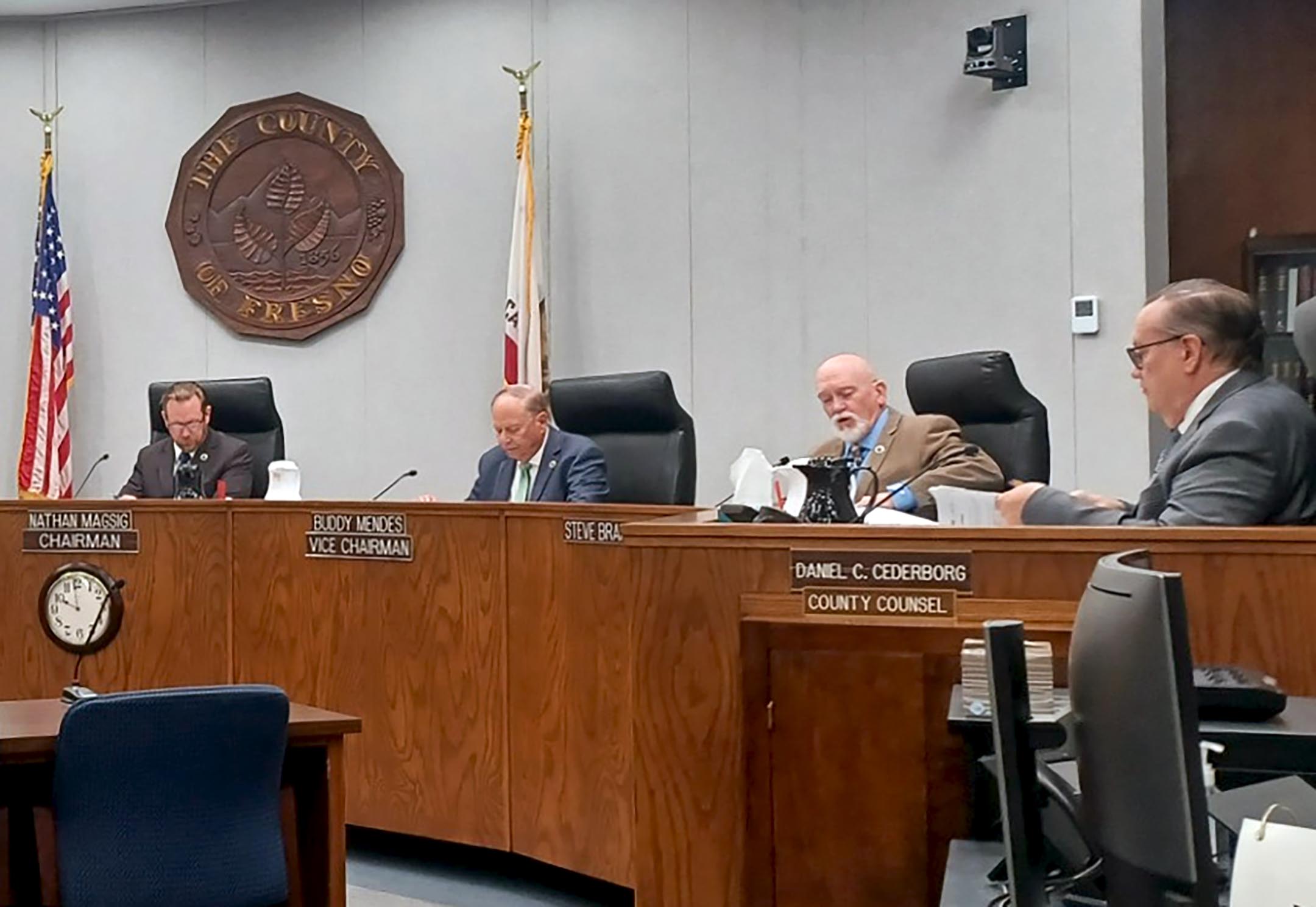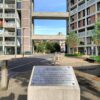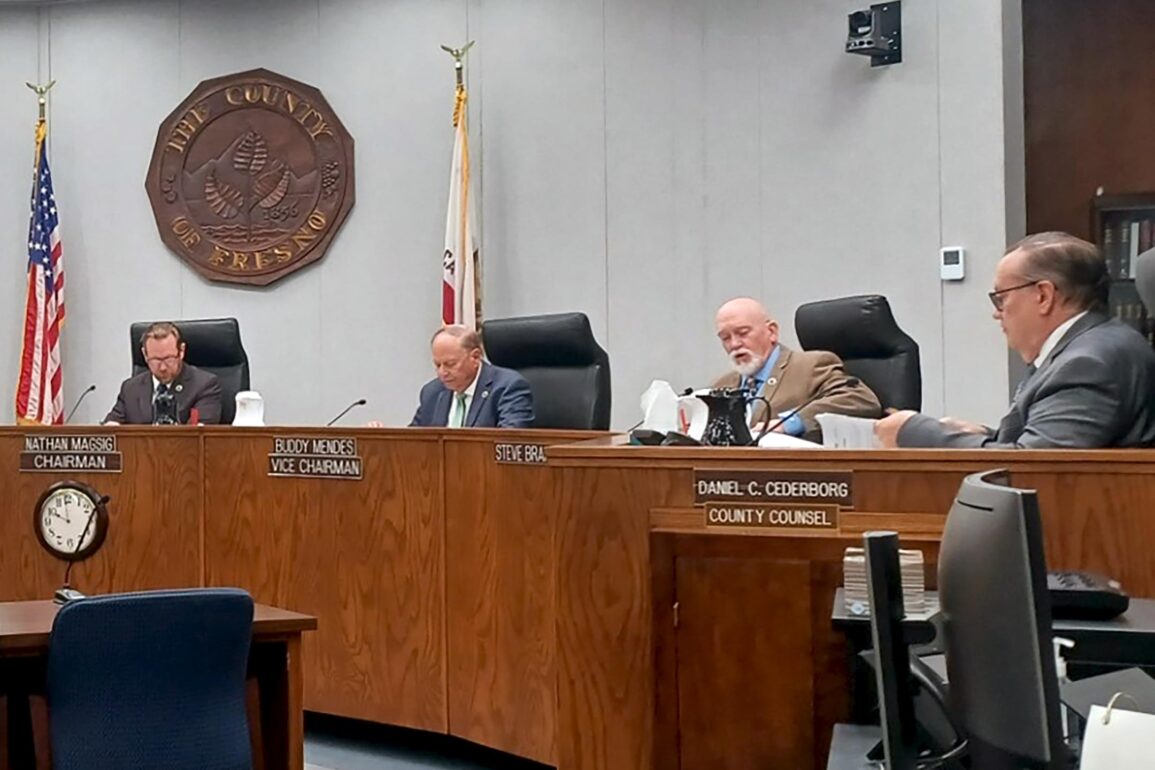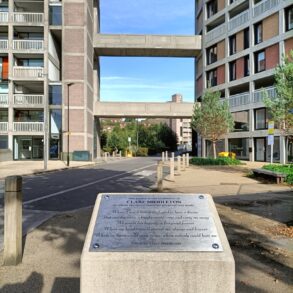
FRESNO COUNTY – Supervisor Steve Brandau has taken a step closer to cleaning up Fresno County.
At a prior Board meeting, Brandau introduced two countywide resolutions. The first had to do with abandoned buildings; the second, with graffiti.
At that earlier meeting on Sept. 25, 2024 Brandau informed the Board that Fresno County was experiencing a serious case of blight. That is, buildings in the county were left to neglect. These buildings, a portion of which were owned by out-of-town landlords, became magnets for drug dens, homelessness and other criminal activities. In the same vein, abandoned buildings invariably became the canvasses of taggers and graffiti artists.
At the latest meeting on Oct. 22, the Board approved the first hearing of Brandau’s “Vacant Structures and Buildings” and “Graffiti Abatement” ordinances and scheduled the second hearing – and adoption – of these ordinances at the next Board meeting scheduled for Nov. 5, 2024.
Urban v. Rural
When Brandau introduced the two ordinances at a prior meeting, he said the intent of the legislation was to hold property owners accountable for the condition of their properties. At the Oct. 22 meeting, Brandau mentioned that absentee landlords need to be held accountable.
“Maybe they (landlords) live 300 miles away,” he said, “but something happens in their family and they shut down a house, (or) they shut down a building. Then it becomes an attraction for crime and, sometimes, homelessness.”
As a result, property values go down and other negative repercussions ensue.
When Brandau introduced these ordinances at the prior Board meeting, Supervisors Brian Pacheco and Buddy Mendes objected. Their respective districts include rural constituents and both supervisors said the ordinances unduly penalized farmers. Because the legislation holds property owners liable for the disrepair of their buildings, Mendes said farmers would be unduly punished.
Because Brandau’s legislation holds owners accountable, Mendes and Pacheco complained that it was unfair to farmers who have various types of equipment, fixed or otherwise, on their property to know if equipment has been vandalized or tagged. The farmers, as victims of vandalism, would be victimized twice by having to pay a fine for the vandalism.
“You’re victimizing the victims,” Pacheco said at the earlier meeting.
Because of these concerns, Brandau tabled the ordinances temporarily and informed his fellow supervisors that his staff would correct the language to ensure that farmers and rural constituents would not be unduly penalized.
The revised ordinances exempt certain agricultural structures from the vacant structures ordinance.
“I just want to say I appreciate Supervisor Brandau for making those revisions,” Pacheco said. “I’m good to go with this legislation.”
With respect to the graffiti abatement ordinance, Brandau and county counsel Daniel Cederborg emphasized that while the ordinance applies to the entire county, its emphasis will be on suburban areas.
“This is a real urban problem,” said Brandau. “Staff went back to the drawing board and made it work so it focuses on urban blight.”
Cederborg echoed Brandau’s comments. “This ordinance does apply countywide,” he said. “The focus for code enforcement will be on urban areas.”
He mentioned there is an existing ordinance that provides county financial assistance to property owners who request help to remove graffiti from their properties.
“We’re not looking for a standpipe (on a farm) that has graffiti on it,” said Cederborg. “This provides a tool for neighborhoods that are heavily impacted by graffiti. But we’re one of the largest counties in the state and it’s very difficult for property owners in rural areas to know what has been done on some parts of their property.”
The second hearing for both ordinances will be held on Nov. 5, 2024.
This post was originally published on this site be sure to check out more of their content.









